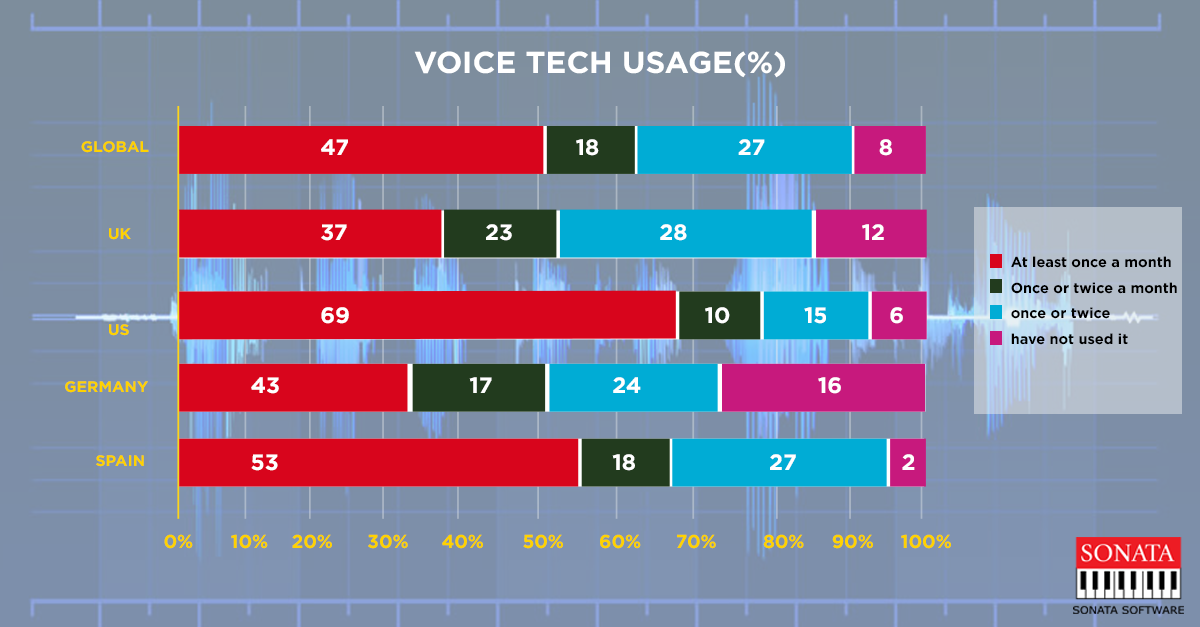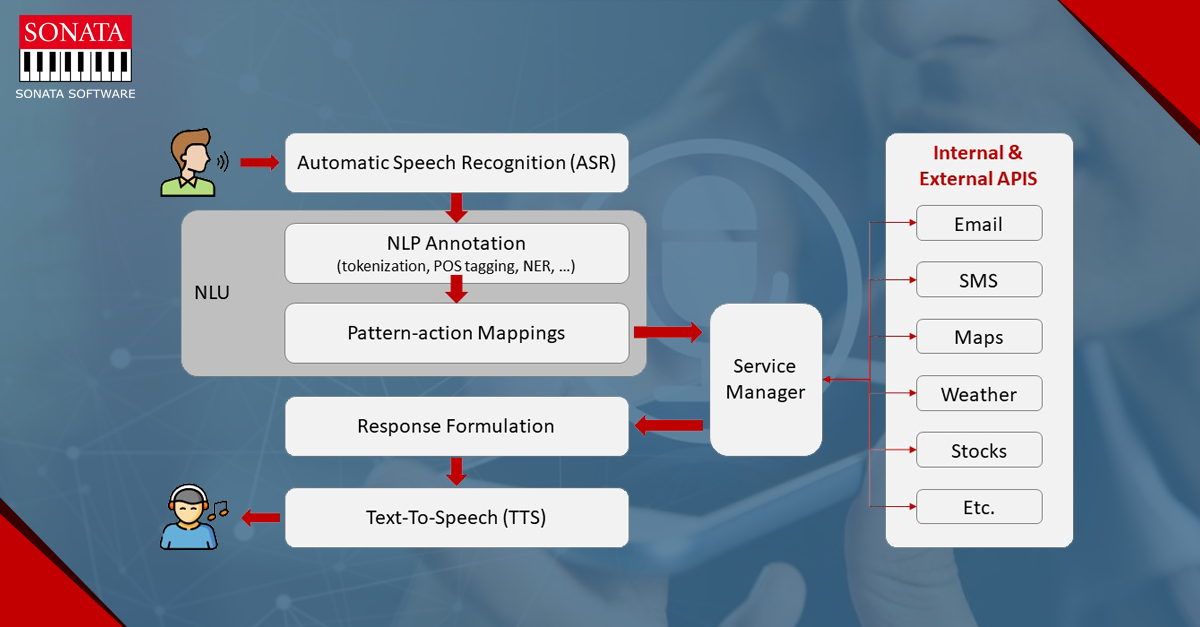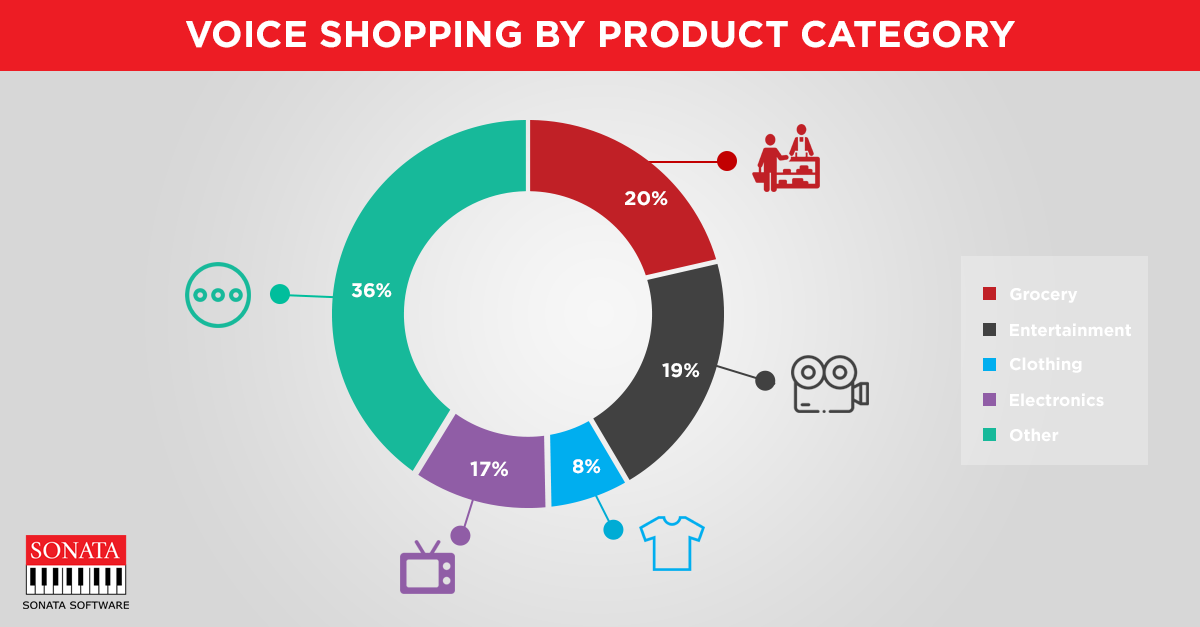In 2015, Professor Klaus Schawb, founder and chairman of world economic forum, introduced the phrase “Fourth Industrial Revolution”. He envisaged that emerging technologies such as artificial intelligence, Robotics, IOT, Blockchain, etc. will be bedrocks of this revolution and will transform every walk of our life. Moving forward 4 years, we can see the impact of these technologies across industries. They provide better customer experience and create superior value for the stakeholders.
Voice enabled commerce is one of the success stories of the fourth industrial revolution. It has the potential to completely transform ecommerce as we know today. Powered by advances in the Artificial Intelligence (AI), Natural Language Processing (NLP) and Machine Translation, voice assistants are getting better at interpreting and understanding human voice commands.
What is Voice enabled commerce?
Voice assisted commerce is a form of conversational commerce, in which a user interacts with a business through voice recognition technology. Unlike the traditional ecommerce, where a user either must type in search query or select by pointing and clicking, the voice assisted commerce works on voice command of a user. Popular examples are Amazon Echo, Siri, Cortana, and Google Home.
Voice assisted Commerce is here! Trends & Forecasts
Voice search is revolutionizing the way people perform searches on web and mobile devices. It has made finding products online simpler and provides a personalized shopping experience. Key industry trends corroborate the optimistic outlook.
- By 2020, 50% of all the online searches will be voice based search, reported by ComScore.
- 500% more spend by current voice assistant users over next three years, according to a study released by Capgemini in year 2018.
- According to OC&C report, Voice shopping will touch $40 Billion by 2022, a 20 fold increase from 2018.
- By 2021, more than 20% of world population will use voice assistants.

Technology behind Voice Assisted Commerce:
When a voice command is given to AI assistants, such as Amazon Echo, voice is converted into text, which then is analysed and processed and basis the nature of interaction, the response from the assistant is generated in the form of reply or placing a shopping order.

Voice assistants, which power Voice commerce, uses NLP (Natural Language Processing), a form of Artificial Intelligence. NLP enables machines to understand and learn from the languages, we human speak and write.
What has triggered the growth of Voice Assisted commerce?
A paradigm shift is happening in the way we perform searches, as more and more users are turning to voice to find products online. These changes in virtual shopping behaviour are primarily because of below factors:
- It is easier and more convenient – voice search can be performed hands free and you can perform other tasks at the same time.
- It offers personalized customer experience and has decision support.
- Experience is closer to the in-store interaction with the sales executive.
- It brings the point of sales closer to the users.
Voice assisted commerce presents a huge opportunity for retailers as
- They need to invest less in customer services.
- The steps required to make a purchase shorten the sales cycle.
- It presents a chance to leverage customer data to provide more personalized services.
Using voice data to continuously train and learn, Voice assistants can analyse and recognize buyers’ shopping pattern. Hence repeat orders are rendered within seconds by AI assistants.
Below chart depicts percentage share of voice shopping by product categories

Challenges Voice Assisted Commerce must overcome
The potential of voice commerce is beyond doubt; however, it must find answers to some pertinent questions before it becomes mainstream.
- Technology readiness: Unlike typed search queries, voice search commands are conversational, spoken in natural languages. This increases the complexity of interpreting, understanding and rendering correct responses manifold. Even the state of art virtual assistants by tech giants such as Google, Amazon, etc. are mostly deemed to be suited for repeat orders. For new product discovery, buyers currently switch to traditional online shopping.
- Privacy concerns: Voice assistants wait for voice commands and capture conversations happening around them. This raises privacy concern among the people, who fear that these smart devices are always listening. Privacy concern is one of the main reasons many households do not want to have likes of Amazon Echo in their home.
Despite of certain concerns such as technology and privacy, future looks bright for voice commerce. Voice recognition technology is improving at a rapid pace, making the voice assisted platforms smarter. Privacy policy such as GDPR can address security and privacy concerns of consumers.
Are you game for this new advancement? Read on for better clarity and check our other blog pieces in the e-Commerce space for clearer insights.

